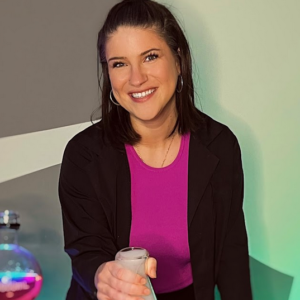Lauren Rathe
 | |
| Department | Science |
|---|---|
| House | STEM |
| Contact | lrathe@tsas.org |
| Joined | 2023-08-01 |
| Education | Bachelor of Science in Agricultural Science and Natural Resources with a major in Environmental Sciences from Oklahoma State University |
Chemistry
Tris: 2 | Open to: Juniors | Prerequisites: Algebra I, Biology, Conceptual Physics
Chemistry is a laboratory science course in which students will explore the composition of matter and the physical and chemical changes it undergoes. This course combines lecture and discussion to support a heavily laboratory focused curriculum, allowing students an active learning environment to explore basic and complex chemistry concepts.
Chemistry in the Community
Tris: 2 | Open to: Juniors | Prerequisites: Algebra I, Biology, Conceptual Physics
Chemistry in the Community is a laboratory-focused course, using experimentation to explore basic chemistry concepts. This course uses real-world environmental issues to explore multiple topics in chemistry through lecture, discussion, and guided experiments.
Chemistry Supplement
Tris: 1 | Open to: Seniors | Prerequisites: Chemistry in the Community
In this chemistry supplement course, students who have completed Chemistry in the Community will apply the concepts learned in that course while diving deeper into more advanced topics and lab experiences. These concepts will complement the material taught in the two-trimester Chemistry course, offering an opportunity for students who have not taken that course to explore more in-depth topics before transitioning to college-level chemistry. You'll delve into subjects like chemical bonding, electron clouds, thermodynamics, and reaction kinetics, building on the foundation you've already established. This course serves as a bridge to college-level chemistry, providing hands-on lab work and enhancing problem-solving skills to prepare you for continued education.
Citizen Science
Tris: 1 | Open to: Sophomores, Juniors, Seniors | Prerequisites: Biology
In this citizen science course, you’ll discover how everyday people can make meaningful contributions to scientific research—no degree required! We’ll explore how to use tools like the SEEK app for identifying plants and animals and the Audubon bird song app to track bird populations. We'll explore how citizen science is providing enhanced data for real life science by exploring how this method of data collection is used currently, and you'll also learn hands-on techniques for water sampling, collecting live animals, and other methods to help monitor local ecosystems. By the end of the course, you’ll be equipped with the skills to contribute to real-world science and make a positive impact on the environment.
Environmental Science
Tris: 1 | Open to: Freshmen, Sophomores, Juniors, Seniors | Prerequisites:
In this environmental science elective, we will explore the biological components that make up our planet’s ecosystems and how they interact with the environment. From the smallest microorganisms to the largest ecosystems, we’ll examine the science behind biodiversity, species conservation, and the role of plants and animals in maintaining a balanced environment. We’ll also explore pressing environmental issues like climate change, pollution, resource extraction, and how new technologies are helping to protect our natural world. Join us to learn how science plays a key role in a sustainable future.
Modern Science Discoveries and Research
Tris: 1 | Open to: Sophomores, Juniors, Seniors | Prerequisites:
In this course, students will learn how field scientists collect and statistically analyze data to draw meaningful conclusions in various areas of science. We will explore case studies of groundbreaking scientific discoveries, examining the technology, research methods, and real-world applications behind them. Through hands-on experience, students will develop skills in data collection, statistical analysis, and research design. By the end of the course, students will have the opportunity to design their own research project or study, applying the techniques and tools they’ve learned to explore a scientific question of their choosing.
- Chemistry preferred, but not required
No results